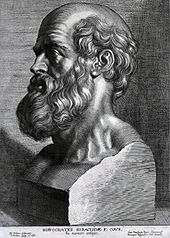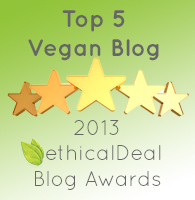“Let food be thy medicine, and let the medicine be thy food.”
– Hippocrates, The Father of Western Medicine
I live in an upper middle class neighborhood and many of my friends are physicians. I love them and know that they are brilliant, competent and caring doctors, but I often wondered why many of them asked me the expected questions when they learned that I follow a vegan diet: where do you get your protein and how do you get enough calcium without dairy? I decided to search the web to find out the quality and quantity of nutritional training that medical students are required to undergo. The results of my search were disheartening, at best.
A 2006 study in the American Journal of Clinical Nutrition revealed that medical students received an average of 23.9 hours of nutrition instruction during medical school. This is less than one full day! Furthermore, only 38% of the medical schools surveyed made it mandatory to take the minimum 25 hours of nutrition education recommended by the National Academy of Sciences, and only 32% of the medical schools surveyed required a separate course in nutrition. What? How could this be? What happened to Hippocrates’ suggestion that food should be our medicine and our medicine should be our food? Hippocrates was obviously considered a wise man in the field of medicine because every doctor took the Hippocratic Oath; didn’t they?
Thank goodness for doctors, including the members of The Physicians’ Committee For Responsible Medicine, who are committed to recognizing the strong connection between the foods we eat and our health. I am hopeful that this connection will be a growing trend in the medical community. I have good reason to believe that it will be. Please consider the following story…
A few weeks ago, I attended a lovely bridal shower in New York City and I was lucky enough to sit next to my beautiful young cousin, Helaina Klein, who is currently a medical student at the Robert Wood Johnson Medical School, soon to be part of Rutgers University in New Jersey. While discussing our plant-based diets, Helaina told me about an elective she helped to create at her medical school as part of the “Healthy Living Task Force of the Robert Wood Johnson Medical School.” I was extremely interested in this topic of conversation, as my articulate young cousin proceeded to describe this group which was founded in 2011 to increase medical students’ understanding of local and global food issues, and to promote healthy eating for medical students and their future patients.
When I returned home from the bridal shower, I read the Mission Statement of the Healthy Living Task Force which Helaina sent me on Facebook. A significant excerpt from the Mission Statement reads “The dietary choices of health professionals affect not only an individual’s health, but can also impact a community’s health, and by extension, global health. We hope that this extracurricular training program will help students achieve a balanced and well-rounded lifestyle that can model good eating habits for all their future patients, communities, and associations.” The extracurricular training program includes a lecture series on a variety of topics (eg. childhood obesity, cardiovascular health and nutrition, and nutrition in pregnancy), community outreach (eg. trips to the local farmer’s market and local community kitchens dedicated to bringing healthy food to people in the area) and sustaining projects (eg.cook-offs and newsletters).
Helaina also e-mailed me one of the Healthy Living Task Force’s newsletters which included an article by Jacob Nettleton, written while he was a third year medical student, entitled “Opinion: Veganism and the Physician.” I was so enthralled by Jacob’s article (it gave me so much hope because the author is a future physician), that I decided to include it in its entirety right here. I hope you love this article as much as I did. I applaud the Robert Wood Johnson Medical School for encouraging this important elective created by the Healthy Living Task Force and I only hope that other medical schools will follow suit! Anyway, here is Jacob Nettleton’s most inspiring article…
OPINION: VEGANISM AND THE PHYSICIAN
By Jacob Nettleton, MS3
People are generally able to make lifestyle modifications only gradually; pushing a patient too hard can sabotage a physician’s best efforts. However, physicians are educators: while telling smokers that any decrease in their habit will pay dividends and encouraging small steps, they are not shy to impart that there is no safe level of tobacco use. In a world where striving towards health is beset by a handicap just from living in our modern Western society, what counts as full disclosure? Might patients benefit from knowing the breadth of knowledge on the issue of diet, that eating a vegan diet has been shown to halt and even reverse atherosclerotic disease? At his wits end after undergoing a quadruple bypass and still having to go back for two stents, Bill Clinton sought out some of the top doctors in the world. Their recommendation? You guessed it…
Why is a vegan lifestyle the best option for a former president (and extremely wealthy man) and not for our patients? Why is putting a person on five medications seen as less controversial than advocating a plant-based diet? Conventional wisdom claims the meds are easier, but what exactly does that mean? More convenient? How much of this is due to our culture and the structure of how we deliver health care? How much is due to our unwillingness to change? If such questions are considered out of the scope of our education, perhaps we need to change our education. I don’t know all the answers, but it is up to us to question the current thinking in order to do right by our patients.
The responsibility of the physician to become educated in food politics is not limited to the one-on-one patient interaction. Rudolph Virchow said that, “Physicians are the natural attorneys of the poor, and thus social problems should largely be solved by them.” An understanding of what we eat and where it comes from helps tie together the social determinants of health as they manifest in issues as disparate as economic injustice and education policy, not to mention antibiotic resistance, pollution & land use.
I am vegan not because I believe it is unhealthy for humans to consume animal products once in a while (and that’s of course how we’re built to consume it, not at each sitting). I am vegan as a political stance, and as an advocate, to educate others about what is possible for the health of our communities, and for the world.
Recommended reading (of the well-researched, non-preachy variety) for more perspective: In Defense of Food, by Michael Pollan; The China Study, by T. Colin Campbell.
Jacob Nettleton can be reached at jacob.nettleton@gmail.com








Hey, good to find someone who argees with me. GMTA.